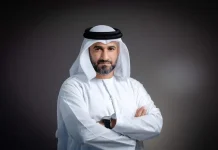Today’s geopolitical events have fast-tracked the need for countries and companies to achieve a net zero carbon economy by 2050. Already, more than 1,500 companies have pledged to become carbon neutral or net zero. Although a significant commitment, it is time for the world to move from climate pledges to progress.
While I am an optimist regarding technology’s key role in helping societies reach carbon neutrality, I believe an end-to-end solution will need to be addressed in a three-point framework which I refer to as the “Sustainability Triangle of Success”. This framework defines the role of technology, corporations and policy makers in driving sustainable impact.
1.The role of technology
A helpful place to start is something we refer to as the 3 R’s: Report, Replace, and Remove. The path to net zero depends on reliable and consistent measurement, which is vital to ensuring accountability. Innovative technologies are equally crucial to providing solutions that will help increase energy efficiency, replace current electricity generation methods, and remove historical carbon emissions.
At Microsoft, for example, we’ve set a number of goals to help meet our commitment to become a carbon negative, water positive, zero waste company. We’re improving efficiencies, investing in product development to help our customers and partners better manage their own emissions, and have joined the Carbon Call coalition – an initiative designed to bolster accounting of carbon emissions and removal. We’ve also launched powerful solutions that enable organizations to take advantage of a growing set of environmental, social and governance (ESG) capabilities to accelerate their sustainability progress.
2.Corporations as catalysts
The increasing need for robust ESG policies, protecting and projecting the right brand image, and the growth opportunities which come with being a more sustainable organization, are some of the key contributors compelling businesses to scale up their sustainability plans.
Corporations have a lot to offer the sustainability agenda by reducing waste from operations, increasing the use of renewable energy, making products/services more environmentally friendly, and forming Public-Private Partnerships (3P) to yield breakthroughs in technology.
As a technology company, our commitment to accelerating progress towards a more sustainable future focuses on areas where our innovative solutions can have the greatest impact. For example, our partnership with SABIC, a multinational chemical manufacturing company, to recycle ocean plastic and create eco-friendly devices led to the creation of Ocean Plastic Mouse.
Although only a small step towards the creation of sustainable products and product lifecycle, we hope it inspires other companies to leverage similar innovations that can contribute to positive change.
3.Bold government goals
Governments and policymakers play a crucial role in enabling progress towards sustainability and carbon neutrality. They establish national sustainability goals, operationalize those goals by setting policies and regulations, and drive progress towards targets by adopting incentives and investing in scientific research and development.
Across the Middle East and Africa (MEA), governments are proactively investing in, and introducing policies and regulations, to reduce their carbon footprint. Although a significant leap towards sustainability, governments have many more untapped opportunities to explore in accelerating their Net Zero Goals. Key among them, for example, is updating outdated standards across industries with the fast-paced technological advancements happening in the field of recycling, material science and others.
Leadership as the lever
At the center of the Sustainability Triangle of Success lies Leadership. This enables the three vital levers to work together with the common purpose of achieving positive and sustainable impact to our planet. Without the right leadership, each of the triangle corners (Technology, Corporations, and Government) would be working in siloes with pockets of success here and there.
The real promise lies with joining efforts collectively. One facet of leadership is shared accountability. For example, in forums like UN Climate Change Conference of Paris (COP), where governments, companies and technology leaders come together sharing the same objective, accelerating our path to sustainability and the Paris Agreement.
With the upcoming two conferences being hosted in Middle East and Africa (COP27 in Egypt, COP28 in UAE), this is just another testimony to the leading position and commitment of the region to not only be part of the energy transition discourse, but to help shape it as well.
The future looks bright
As we look forward, we must continue to build the foundations needed today and do the work to translate pledges into progress and deliver on our sustainability commitments for future generations. I believe the region has made great progress around sustainability, and I am optimistic about the future.




























